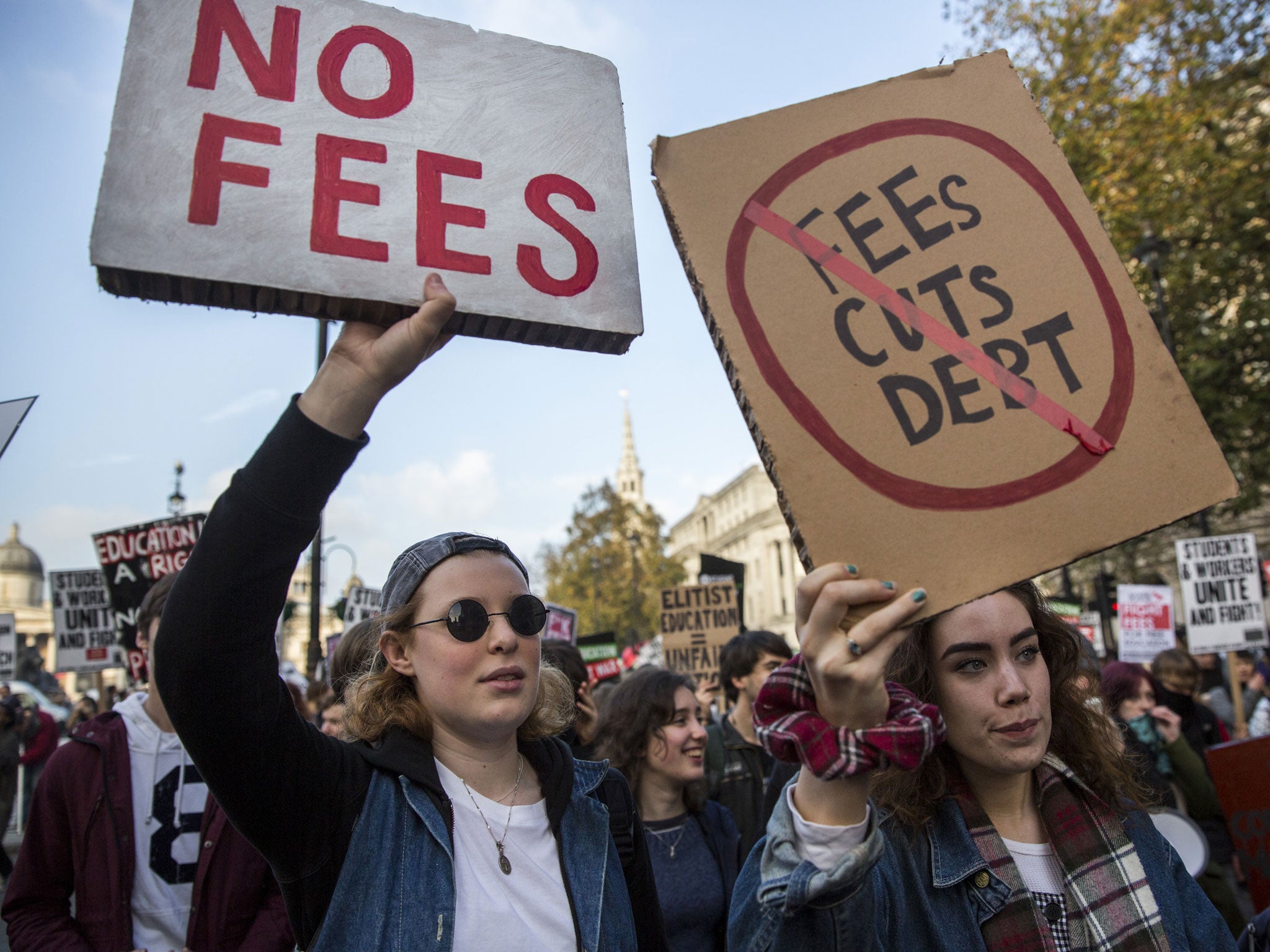Number of universities charging £9,000 a year is growing, says watchdog
The study found the increase was largely a result of further education colleges running degree courses increasing their charges

Your support helps us to tell the story
From reproductive rights to climate change to Big Tech, The Independent is on the ground when the story is developing. Whether it's investigating the financials of Elon Musk's pro-Trump PAC or producing our latest documentary, 'The A Word', which shines a light on the American women fighting for reproductive rights, we know how important it is to parse out the facts from the messaging.
At such a critical moment in US history, we need reporters on the ground. Your donation allows us to keep sending journalists to speak to both sides of the story.
The Independent is trusted by Americans across the entire political spectrum. And unlike many other quality news outlets, we choose not to lock Americans out of our reporting and analysis with paywalls. We believe quality journalism should be available to everyone, paid for by those who can afford it.
Your support makes all the difference.The number of universities charging the maxim student fee of £9,000 a year is growing, according to a published report by the universities’ access watchdog.
The study by OFFA, the Office for Fair Access, shows the number has gone up from 130 to 139 in the past year - largely as a result of further education colleges running degree courses increasing their charges.

In all, 31 f.e colleges now charge the maximum for some of their courses - compared with just nine a year.
The number of universities charging the maxim for all their courses has also risen - up from 44 to 47 (roughly a quarter of all institutions). It means the average fee has risen from £8,716 to £8, 781 - only £219 short of the maximum.
However, the study which analyses access agreements struck by OFFA with institutions charging more than £6,000 for their courses, also reveals they are planning to invest £750.8 million on measures aimed at increasing the number of disadvantaged students going to university. Of this, £399 million be spent on financial support - including bursaries and fee waivers.
Professor Les Ebdon, director of OFFA, said: “There are now greater rates of young people from disadvantaged backgrounds in higher education than ever before - but we know talent is still being lost.
“Too many people who have the talent to excel are not given full opportunity to demonstrate their ability. Eroding the stubborn link between your background as a child and you life chances as an adult is a long-term project.”
Join our commenting forum
Join thought-provoking conversations, follow other Independent readers and see their replies
Comments